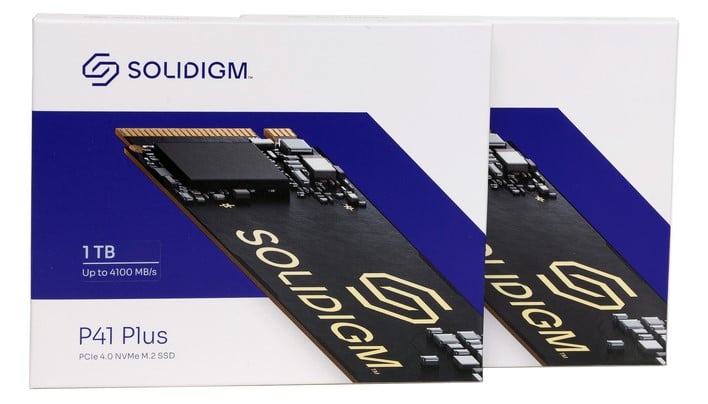Solidigm P41 Plus SSD Review: Strong PCIe 4 Storage Value
Solidigm P41 Plus: More Benchmarks, Gaming Tests And The Verdict
HDTune v5.75 Benchmarks
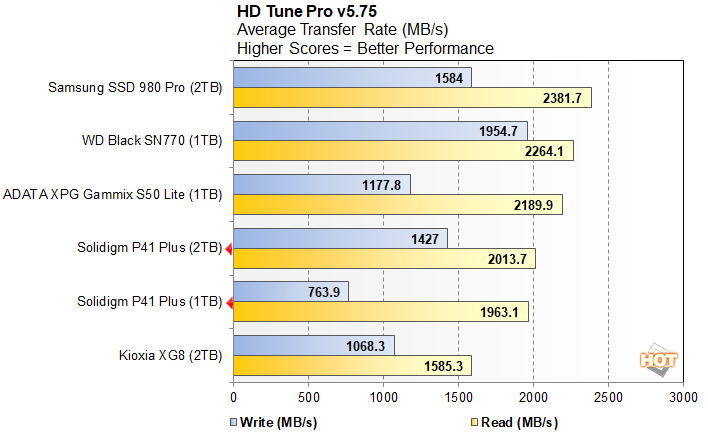
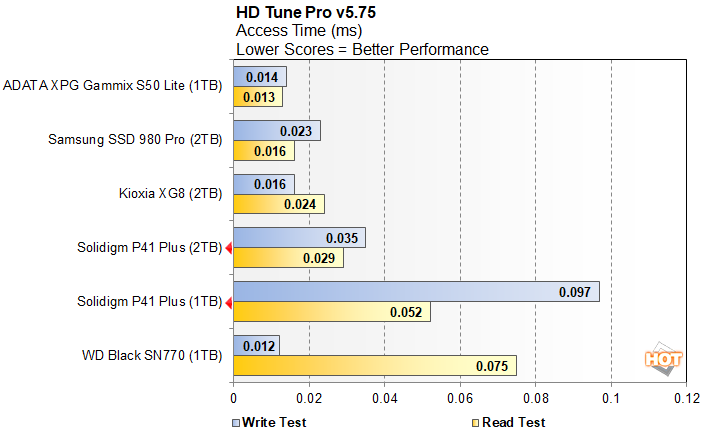
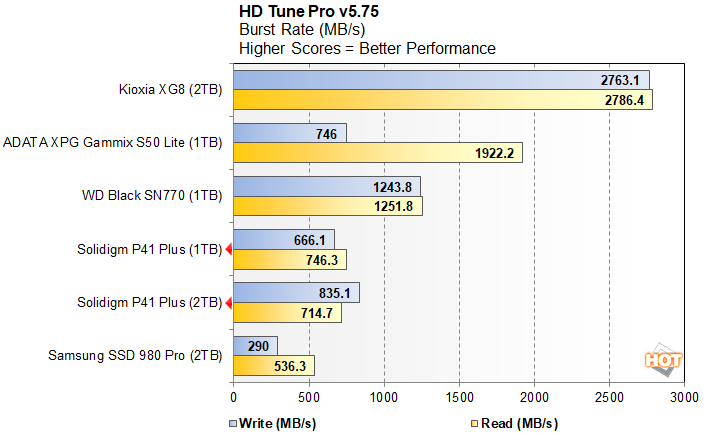
The average transfer throughput trails the higher end drives in HD Tune Pro, though the Solidigm P41 Plus models fall in line with expectations. The latency metrics inject a little more concern as the 1TB model in particular demonstrates 3-5x longer access times than comparable drives. That said, latencies under 0.1 ms are still acceptable for the vast majority of workloads so we are not overly worried about it, especially considering the synthetic nature of this test.
CrystalDiskMark x64 Benchmarks
CrystalDiskMark is a synthetic benchmark that tests both sequential and random small and mid-sized file transfers using incompressible data. It provides a quick look at best and worst case scenarios with regard to SSD performance, best case being larger sequential transfers and worse case being small, random transfers.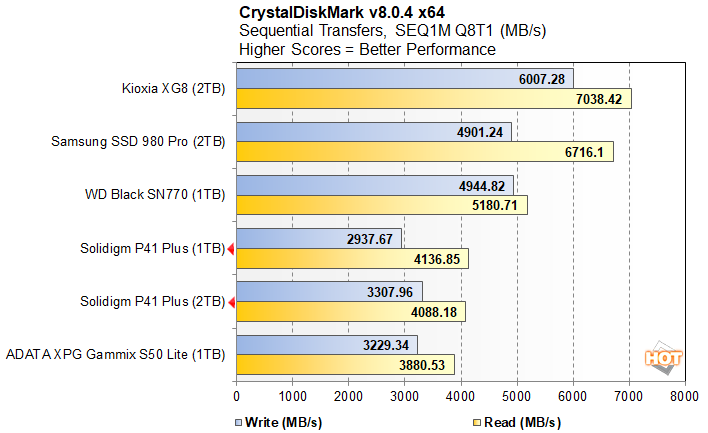
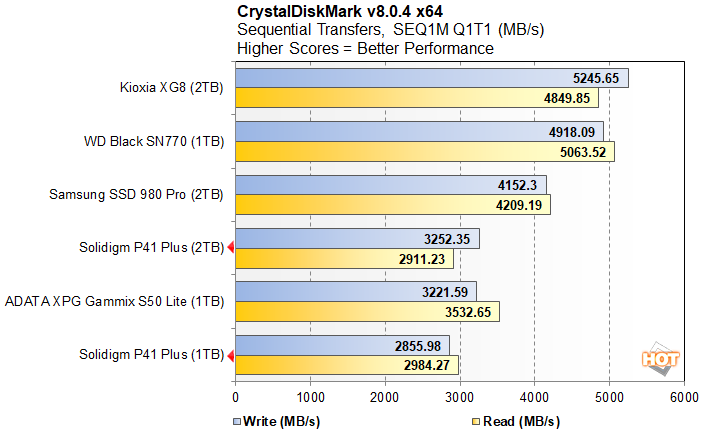
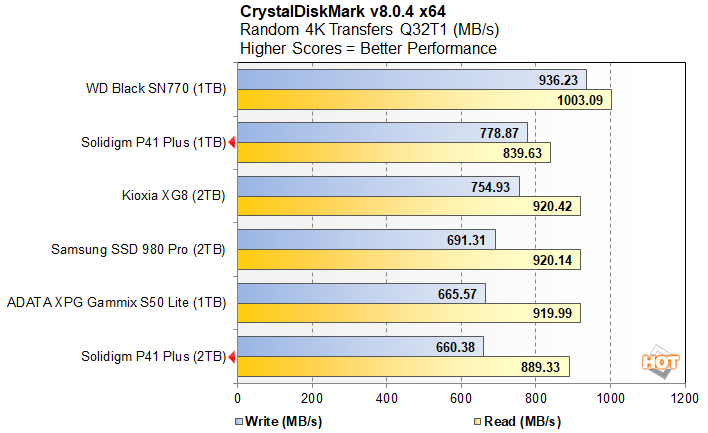
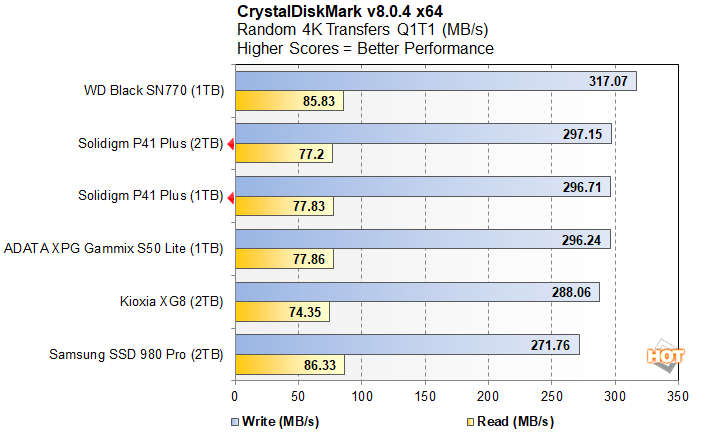
The CrystalDiskMark results trend consistently for sequential transfers, but shows how random reads and writes with the P41 are surprisingly competitive against the field.
Final Fantasy XIV: Endwalker Game Level Load Times
We also tested game level load times using the Final Fantasy XIV: Endwalker benchmark. This tool loads an array of different game levels during its graphics benchmark and outputs the average result when complete.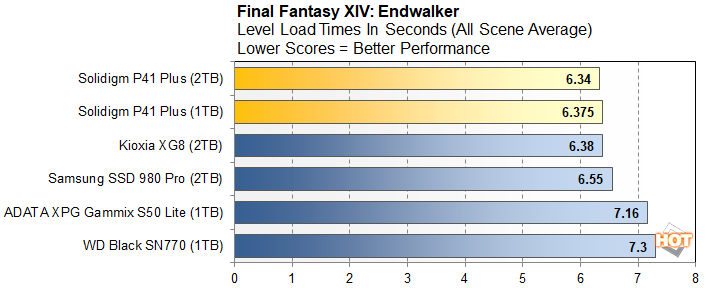
The Solidigm P41 Plus drives both deliver the fastest load times of the drives we tested here. This provides a good example of how synthetic reads and writes are not the end-all assessment of a drive. Real-world use cases can lean on different attributes of the drive, which the Solidigm P41 Plus is well suited for.
UL's 3DMark Gaming Storage Benchmark
UL recently added a gaming-centric storage benchmark to 3DMark, that leverages trace-based tests of actual PC games and gaming-related activities (like streaming with OBS) to measure real-world gaming performance in a variety of scenarios. The tests include things like loading Battlefield V, Call of Duty: Black Ops 4, and Overwatch from the initial launch to the main menu, recording a 1080p gameplay video at 60 FPS with OBS while playing Overwatch, installing The Outer Worlds and saving game progress. And finally, copying the Steam folder for Counter-Strike: Global Offensive from an one drive to another.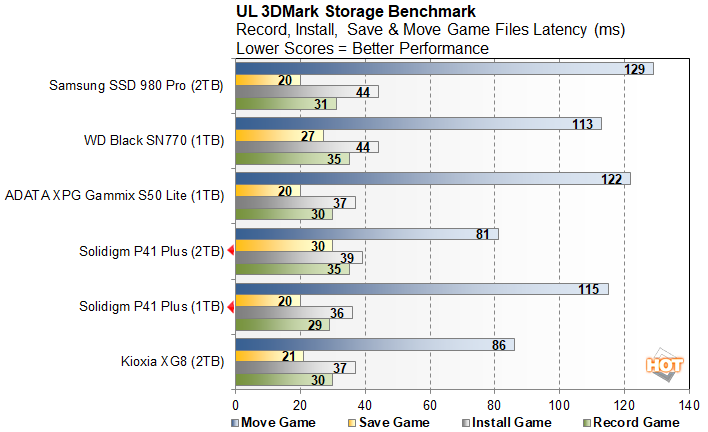
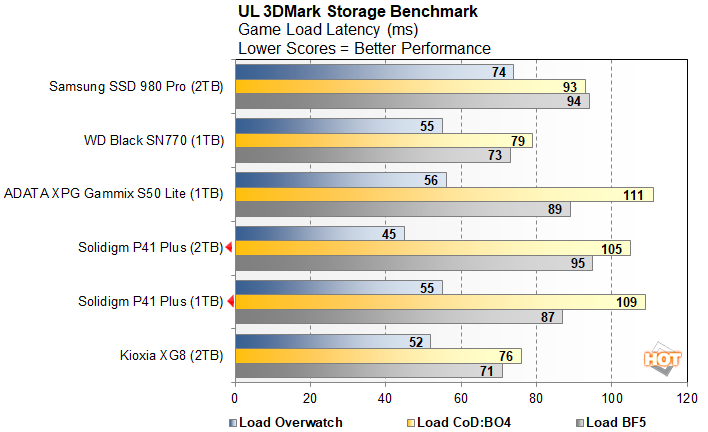
We see more competitive results from the Solidigm P41 Plus drives in these workloads. These tests assess latency which translates to overall responsiveness of the experience. Depending on the title, The P41 Plus can lead the pack here as well, as seen in the Overwatch subtest.
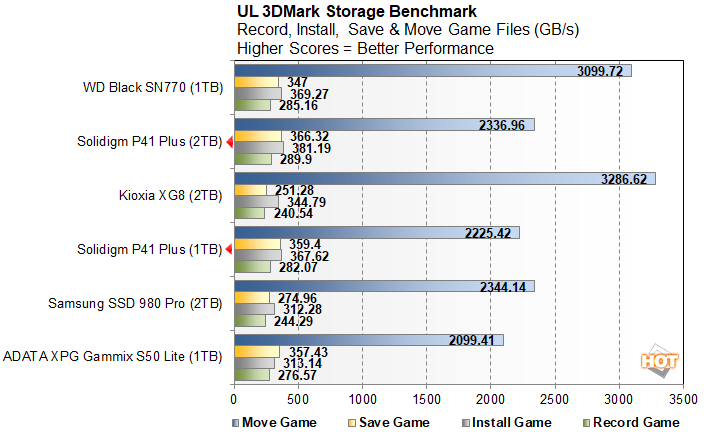
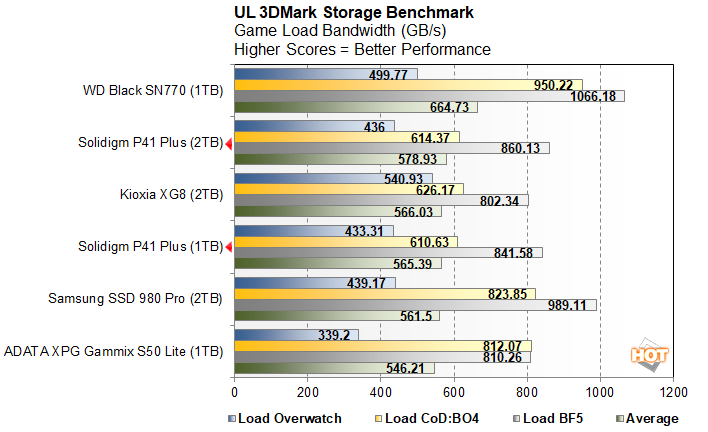
This drive's bandwidth results are not earth-shattering, but they are competitive in all metrics.
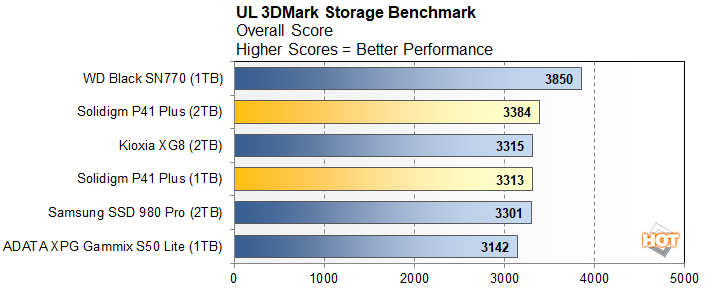
As an overall assessment, the only outlier in our group is the WD Black SN770, with a score around 500 points higher than the rest. The remaining five drives are really within each other's margin of error from one test to the next.
UL's PCMark 10 System Drive Storage Test
We like PCMark 10's quick storage benchmark module for its real-world application measurement approach to testing. PCMark offers a trace-based measurement of system response times and bandwidth under various scripted workloads of traditional client / desktop system use cases.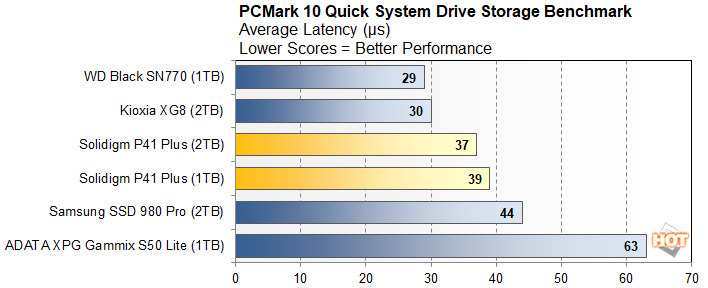
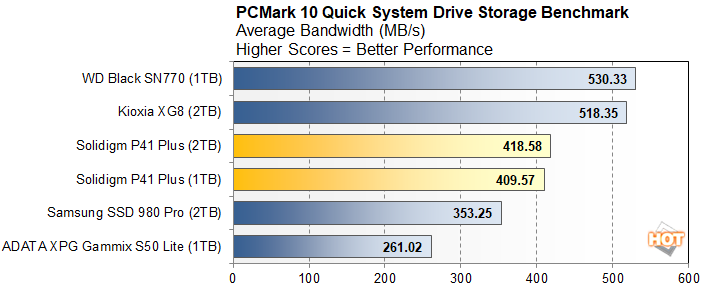
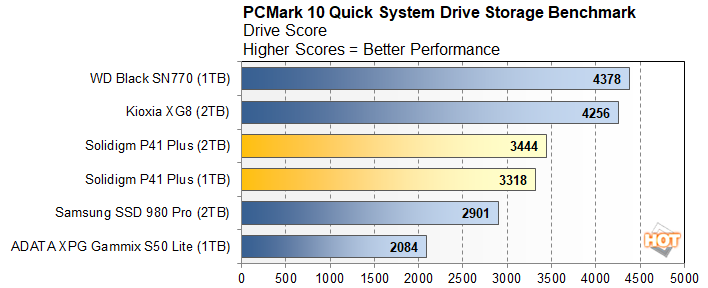
In the trace-based PCMark tests, which are comprised of a broad mix of consumer workloads, average latency is better controlled. Every drive will have different workload optimizations in this respect, so it is important to test in a variety of ways. The overall drive score is a geometric mean of bandwidths and latencies in different tests which includes real-world applications like Microsoft Excel and Adobe Photoshop. In this context, the Solidigm P41 Plus drives deliver very respectable performance for their price, and actually outrun the Samsung 980 Pro.
Solidigm P41 Plus SSD: The Verdict
In few spots throughout this article, we have gone on and on about value, without really touching on the price of these drives. Like DRAM, the cost of NAND flash solutions can be fairly volatile. As such, we can only assess the price to performance ratio as it stands today. Right now, the 1TB model is available for $82.99 and the 2TB model runs $145.99. This gives us a price per gigabyte of about $0.07-0.08 which is quite low. The ADATA XPG GAMMIX S50 Lite is around $115 for the 1TB version, making it significantly more expensive by capacity.
If you want to chase additional performance, it may be worth stepping up to the WD Black SN770, though again the cost is higher for what you get. With 1TB and 2TB pricing of around $99 and $179 respectively, it is more in the ballpark of $0.09-0.10 per gigabyte.


